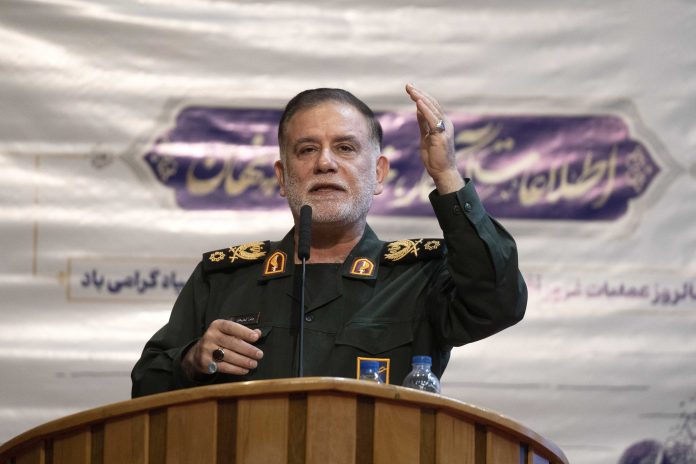
By Jon Gambrell
Associated Press
DUBAI, United Arab Emirates (AP) — A prominent general in Iran’s paramilitary Revolutionary Guard died in an Israeli airstrike that killed Hezbollah leader Hassan Nasrallah in Beirut, Iranian media reported Saturday.
The killing of Gen. Abbas Nilforushan marks the latest casualty suffered by Iran as the nearly yearlong Israel-Hamas war in the Gaza Strip teeters on the edge of becoming a regional conflict. His death further ratchets up pressure on Iran to respond, even as Tehran has signaled in recent months that it wants to negotiate with the West over sanctions crushing its economy.
Nilforushan, 58, was killed Friday in the strike in Lebanon in which Nasrallah died, the state-owned newspaper Tehran Times reported. Ahmad Reza Pour Khaghan, the deputy head of Iran’s judiciary, also confirmed Nilforushan’s death, describing him as a “guest to the people of Lebanon,” the state-run IRNA news agency said.
Khaghan also reportedly said that Iran had the right to retaliate under international law.
Nilforushan served as the deputy commander for operations in the Guard, a role overseeing its ground forces. What he was doing in Lebanon on Friday wasn’t immediately clear. The Guard’s expeditionary Quds Force for decades has armed, trained and relied on Hezbollah as part of its strategy to rely on regional militias as a counterbalance to Israel and the United States.
Nilforushan, like other members of the Guard that view Israel as Iran’s main enemy, long mocked and criticized the country.
“The Zionist regime has many ethnic, cultural, social and military rifts. It is in vulnerable and in doom status more than before,” Nilforushan said in 2022, according to an IRNA report.
The U.S. Treasury sanctioned Nilforushan in 2022 and said he had led an organization “directly in charge of protest suppression.” Those sanctions came amid the monthslong protests in Iran over the death of Mahsa Amini following her arrest for allegedly not wearing her headscarf, or hijab, to the liking of police. At the time, Nilforushan accused Iran’s enemies abroad of stoking the demonstrations led by Iranian women that challenged both the mandatory hijab and the country’s theocracy.
Nilforushan also served in Syria, backing President Bashar Assad in his country’s decades-long war that grew out of the 2011 Arab Spring. Like many of his colleagues, he began his military career in the Iran-Iraq war of the 1980s.



















